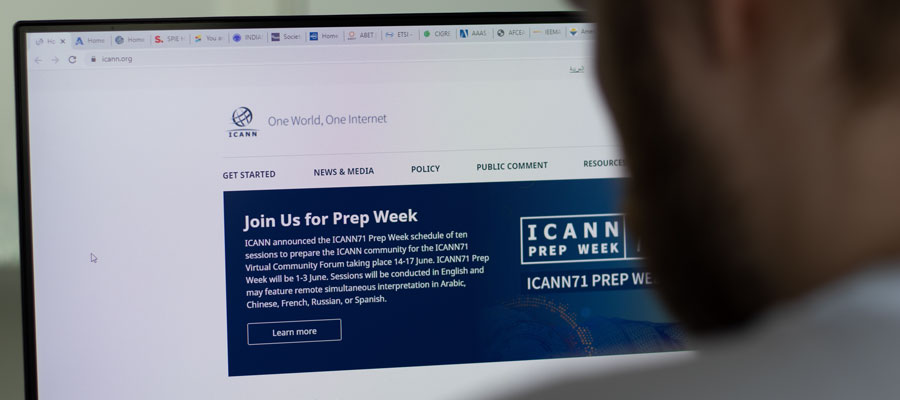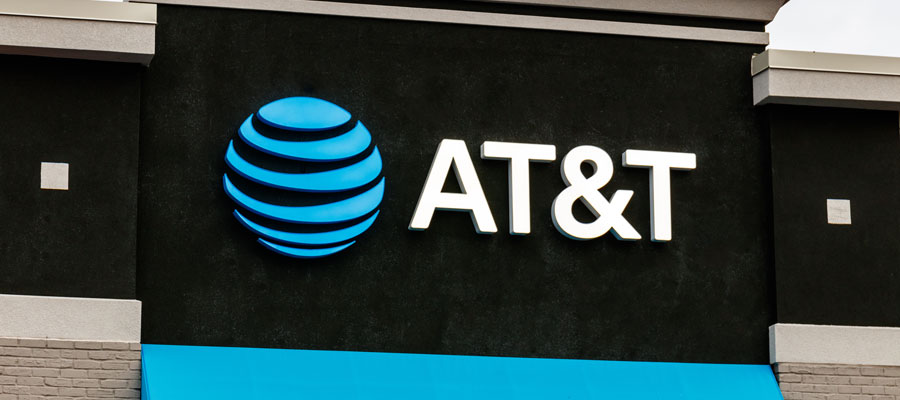YOUR AD HERE
Below is a list of ways to market your business on the Internet including do-it-yourself ways and/the differences of hiring a fully managed solution provider or Internet marketing company to do it for you.
 Below is a list of ways to market your business on the Internet including do-it-yourself ways and/the differences of hiring a fully managed solution provider or Internet marketing company to do it for you. File photo: JLco Julia Amaral, ShutterStock.com, licensed.
Below is a list of ways to market your business on the Internet including do-it-yourself ways and/the differences of hiring a fully managed solution provider or Internet marketing company to do it for you. File photo: JLco Julia Amaral, ShutterStock.com, licensed.Email Marketing
Email marketing can be done in many different ways and it is very similar to bulk mail or every-door-direct where post cards would arrive to your home in the mail, it’s only in electronic form. Here we will discuss the most popular ways to deliver your message via email. The first is through your own newsletter where you solicit your own list of users by collecting email addresses over time. You might also already have a list of your customer email addresses but these should be people who have opted in for your email messages. Using your own list is the most economical way for you to do ‘email marketing’ as you will be using your own data containing people you already have a relationship with and grow that list over time. You will also be sending emails yourself to your subscribers which can save money. There are plenty of inexpensive services you can use to send emails through and view statistics such as who opened your email and what they clicked on. Most services can be purchased for under $40/per month based on the number of subscribers you have. This is a “hands-on” solution, which means you will be doing all the work.
Your second option when considering email marketing is to utilize a third party service to mass email opt-in subscribers who will be on marketing lists which in most cases you will not control. Companies that build these lists put great effort into maintaining the listings and keeping them compliant and will rarely offer this data for sale as it is too valuable to them. These companies will help you target the type of people you’re interesting in reaching and these lists can be organized in near limitless ways, right down to a subscribers zip code, interest or political affiliation. Keep in mind that when you’re not using your own list, you will spend more primarily for their reach and subscriber base not to mention their proficiency with delivery and open rates. Oftentimes these companies and service providers will use whatever graphics or information you provide them or they will offer to design the entire campaign for you. This unlike the first option of doing emails yourself; this will be more of a “hands-off” solution where you will do little to nothing.
Sponsored Search
There is nothing like the purchase intent behind someone who uses a search engine to find something since they are actively searching for a solution to a problem. For example, A) they are hungry and looking for a local restaurant, B) they have a leaking water pipe and need a plumber, or C) their vehicle broke down and they are looking for a tow-truck. Many of these searches are being performed by people who need something and are being done from a mobile device. People will search for solutions and use a search engine such as Google, Yahoo, or Microsoft to skim through results, of which, 9 times out of 10 contain ‘sponsored ads’ or ‘search engine advertisements’ will appear first and are generally more noticeable then other “organic” or ordinary listings. This is intentional and earns search engine companies the majority of their income. These ads attract as much as 89% of clicks and businesses can be on top of these results and pay only when people click on their link or call their business; an extremely effective advertising medium that has literally changed business over the last decade or so.
Search engine companies such as Google (Google.com) and Microsoft (which now owns both Bing.com and Yahoo.com) have search engine advertising programs where small businesses can create advertiser accounts and set up ads to appear on top of these types of search results. Business owners can create their own ads, choose their own keywords and keyword phrases and pop-in their credit card watching their ads go live in just minutes. These search engine companies have also partnered with other lesser known search engine companies (such as Ask Jeeves or AOL) and businesses can opt specifically to be included on these additional search engines widening their reach. The entire program is available online and a business owner can create and set up their own account, or put someone else at their company in charge of it. This person will be responsible for managing the ad account including creating and editing ad campaigns, ad groups, different links and different words with all sorts of settings that help target your ads to the right people during certain days of the week, certain hours of the day, or for your ads to only show to certain demographics or regions; all of these options are provided in these search account panels and all you need to do to sign up is have a valid credit card and email account. You can even have your ads show up when someone types in the phrase “cheap running shoes” but to not show up if they leave out the word “running”; there is near limitless control of how and when your ads can appear to search engine users.
With all of these different features and functions to manage, many businesses will hire a company to “optimize” these ads and ad accounts for them which not only saves time but often saves money as search engine companies have best practice guidelines and suggestions for optimization of the ads which lowers the cost of clicks which can improve the return on investment. Search engine marketing companies are experienced at creating and optimizing these ad accounts and can often save the business money by increasing ad quality while lowering ad cost. It is not uncommon that hiring a company to run the ads for you, on your behalf, will be cheaper and more effective even after paying them their management fees, which varies greatly from company to company, and could be a percentage of spend or a predefined minimum monthly manage fee, or sometimes both. Amazingly, in most cases, unless the business owner is a very experienced Internet user, or has an employee that is, it’s almost always going to yield a better ROI (return on investment) to hire a professional.
- Google Ads – https://ads.google.com
- Microsoft Advertising – https://ads.microsoft.com
Search Engine Optimization
Getting to the forefront of search engines results is far from easy, but SEO, or search engine “optimization” can help. Search engine optimization is a computer coding and examining process including making architectural changes to a web site to allow better search engine bot crawling and processing of the information found on the web site. It’s a process where tweaking certain elements of the website design improves a search engines comprehension or the hindering or readability of the site for the search engines’ computer program. Pieces of computer code, or certain elements of a web page that do not identify themselves well for search engines or do not allow search engines to access them for inspection, or give a clear understanding of what exactly the element is on the page, can be removed and replaced with other elements that a search engine better understands. For instance, if there is a rich in information PDF document on a web page and it is contained inside a piece of computer code that a search engine cannot read or understand, the “Search Engine Optimizer” or the “SEO technician” would remove that piece of code which contains the PDF file and reinstall it in a better way so that the search engine can see the PDF file and read it, bettering ranking the page, and file, for someone who might be searching for it. As an example, it could be a tutorial document for something the person wants to purchase, and without the search engine knowing the file is there, the website might never be visited by that person who is likely to need the tutorial or buy the product. Improving the SEO of a website will create more opportunities for the web pages and web site to be found.
However, there is more to search engine optimization then just web site fixes and improvements. Search engine optimization has become more about measuring a website from the outside, then from within. As search engine optimization has grown in popularity, so has the manipulation of search engine results by savvy SEO marketers and this is something that search engine companies do not want; they seek to control their search engine listings and display only the “best of the best” results. Over the years, they have found better and more reliable ways to rank web pages than just looking at the site itself. Search engines, over the years, have become more and more interesting in offsite signals or valuing a websites usability and importance by meaning how visitors react to it, how often they visit it, reference it, or how many times content or webpages are mentioned on social media. This has leveled the playing field between the “search engine optimizer” and the “search engines” themselves, as the more offsite signals a search engine can be measure, the more accurate a score will be assigned to the website and webpage. So today’s search engine optimization program will involve all aspects of “optimization” from website architecture, website references (links from other sites), social media activity and other complex practices. Unlike sponsored search engine advertising, SEO is rarely something a business owner can do themselves and will most often have to hire someone to do it for them. There are many solutions that can provide ways to cut corners with SEO such as plugins for simple WordPress sites or optimization software, but real SEO is going to require a decent mind behind it as different sites, different software and different programs will be required to realistically access a solid SEO strategy, sort of like visiting a clinic or an emergency room verses a doctor; the clinic might bandage you up, but for a full and throughout understanding of your overall heath, they will always send you to your primary physician who has a better understanding of you and your history.
Further complicating organic search engine results for the SEO marketer in recent years is the increased use of artificial intelligence used by search engine companies to understand context rather than keywords. In the past search engines needed to examine keywords and keypresses on a page to ascertain what the page is about so that it could return the page in search results based on keywords people used to search for things. As of late, search engines are using AI to understands overall page context and a search users intent to match search engines results; a method that is much more difficult for search engine optimizers to attempt to manipulate. This has led to much more accurate search results that in the past. Currently Google is best at this, while Bing and Yahoo technology is still somewhat behind, still relying on older methods and remains trying to catch up.
Business Directories
Business directory advertising might seem insignificant, but it isn’t. Business directories, those which typically act as Yellow Pages where a business is listed within its service type category accompanied by its physical address, phone number, and often its website, are important places to have a business included, especially large and popular directories such as Yelp, Yellow Pages and Super Pages. Google and Bing also maintain their own business directories which are super important to be included in as they influence how your web site and business can come up when people are searching for “local” services, a hugely growing trend. Most business directories will offer basic listings for free and then attempt to upsell you on certain bells and whistles included with claiming the listing; however, some business directories must be paid for either one time, or on a yearly or monthly basis.
Business directories are important not only from a visitor or phone call perspective, but they also contribute to an overall score assigned to your business by search engines where the more times your information is found and that information matches everywhere it increases and builds something known as “citations“, or improves your businesses citation score explained simply like a probability of accuracy. If your business is referenced often, and all of the information found always matches and lines up, your local citation score increases which improves how search engines may display your business information when people search for it. Businesses which have a low citation score, or businesses which are not found, or are found, but the information doesn’t line up correctly, creates a likeliness of inaccuracy or could reflect incorrect or unreliable information and search engines prefer to show businesses with better citations scores and will resort to the most accurate and mostly likely to be accurate listings.
Business directory sites can be submitted to one-by-one or they can be submitted and controlled all at once through third party services which charge to provide a central control panel where all these listings can be handled simultaneously. While business directory listings are far from a “be-all end-all” solution, they certainly should not be forgotten or left out of your marketing mix. Most business directories will allow the inclusion of additional information about your business such as operating hours, descriptions, videos, logos, images, and most importantly, a link to your website. Web links to your site are also very important as they build something referred to as “link popularity” where the more relevant links a site has, the more important the site is believed to be when it comes to search engines. In addition to your local citation building efforts, these web links help build link popularity and enhance the citation value.
Social Media Marketing
Social media is probably one of the easiest and cheapest ways to promote your business if you are willing to put a good effort into it as you can do the entire thing yourself on platforms which are built and designed for the average person. Although social media platforms also include opportunities to advertise and spend money on ads, however, you do not need to do this if you are actively engaging with an audience and you can post good, meaningful content that other people enjoy and share it. Social networks are meant for sharing and they are designed for the most part to link to other outside content with near limitless opportunity.
The best way to use a social media platform such as Twitter (now X) or Facebook is to post content from your own website and bring people from the social media site to your own site which increases your website traffic. Social media sites are becoming more productive for traffic building then even search engines and can be a very effective way to get information about your business as well as bring visitors to your site completely free. The only time you’ll need to hire someone to do it for you is when you are unwilling to spend time on it yourself. As far as ads, the only time you’ll need to spend money would be to make up for shortfall efforts or to “boost” content which lacks its own momentum.
Social media activity also ads to search engine optimization efforts as it builds offsite activity as mentioned in the section on search engine optimization above. Adding social signals to your website is probably one of the leading influencers when it comes to site ranking outside of link building and link popularity. Social signals are important and show search engines that your content is of importance when circulating among social media audiences and is likely high quality depending on the volume of traffic coming from social networks. It is not difficult for a search engine algorithm (computer data processing system) to measure a page which does well in social circles verses one that doesn’t, as it is data all very much being recorded by all sorts of statistics including simple web browsers. Building social signal activity and traffic to your site from social networks is something a small business owner should be taking seriously and every business should be using social media.
If a business is not able to create and maintain its own social media pages it should hire someone to do it for them. There are limitless companies that will build, design and maintain your social media pages for you, but again, this can all be done in-house or by the owner of the business. If you decide to spend money with ads on social networks they are offer many ways to build your following, capture leads, advertise your site, etc., all of which can be hooked up to a credit card and for the most part, automated. Although these campaigns can take some time to setup, they will help make up for time you cannot spend doing it, and if you decide to hire a company, they will most likely be able to get more out of it as far as return on investment as they generally have more experience from running past and current campaigns. Either way, social media should not be left unchecked in your marketing arsenal checklist of excellent ways to promote your business.
Facebook & Instagram Ads: https://www.facebook.com/business/ads
Display Advertising
The use of banner ads is one of the first types of advertising used on the Internet with the first banner displayed in 1993. Banner ads and banner ad networks offer opportunities to create graphic ads and upload them into a system to be shown on potentially millions of websites across the Internet. A significant downside with banner ads however has been A) “banner blindness” a belief that people subconsciously ignore them, and B) the growing trend of “ad blockers” and/or software that automatically removes ads from web pages based on browser settings, software or mobile apps intended to do just that, remove them from view improving the user experience. Not only can banners be annoying, they also tend to slow down the time it takes to load a web page. According to report in March 2023, 31% percent of adult consumers use ad-blockers to remove ads from websites. Still, banner ads can be effective for both branding and traffic as computer programs will adapt to these blockers and display the ads only to users who do not use these blockers and will see them; it just lowers to pool of eyeballs to target.
Several ad networks are available for display ad syndication with a major difference with these ads verses sponsored search ads mentioned above, is that they will cost money not only when someone clicks on them, but since they are highly visual elements they also have costs based on impression (the amount of times the ads appear or load). These costs are much lower than click costs but do ad up and are typically measured on something called “CPM” which stands for “cost per thousand impressions”, so even if there are no one clicking on the ads, there remains a cost to display them within the network. To give you an idea, during a report in 2018, advertisers spent, on average, $2.80 per thousand impressions (CPM), and $0.75 per click (CPC). While this will likely cost less than sponsored search ads cost, user intent is expected to be lower than the intent of a searcher (outside of remarketing which we will get into next). All you will need to set up a display ad campaign is a graphic designer to create your ads, but if you do not have your own designer, Google Ads contains a feature which will automatically build simple visual ads for you, however, if you are very particular about your ad style and design, you should opt to hire your own designer to create your ads.
Remarketing Programs
Remarketing programs have grown tremendously over the last several years are serve as one example of why advertising on the internet is so much better than any other medium. Remarketing programs are the reasons you see the same ads over and over again, or you see ads for items you have recently looked at and give you that feeling that the ads are following you around. This is because remarketing ads are designed to target particular users based on their viewing and visiting habits. For instance, a company that sells golf clubs could initiate a remarketing campaign on visitors to their website. So if someone visits the website, they will continue to see ads from that company website for a period of time; usually a setting of 30 days which is handled by a cookie set in the users browser.
Interestingly, these remarketing programs can be extremely precise at targeting which users to follow, for how long and when to cease following the user. Remarketing programs are usually based on both impression, showing ads to the user, and cost-per-click, when the user clicks the ad and returns to the advertisers website. These remarketing ads can be set up to follow the user for as long as it takes to get that user to a check out page on a website, and can be set to stop following that user, if and when they eventually make it to a successful purchase page on the website indicating the mission was accomplished; the advertiser continued to stay top of mind for the user until the user took action and made a purchase, all of which was originally identified by the users initial visit to the website indicating interest. Remarketing is often called “interest based advertising” and is the subject of much privacy legislation as monitoring users interest is required for the identification of whom to target with ads.
The post 7 Effective Do-It-Yourself (DIY) Ways to Market Your Small Business Online first appeared on Strategic Revenue - Domain and Internet News.







 English (US) ·
English (US) ·